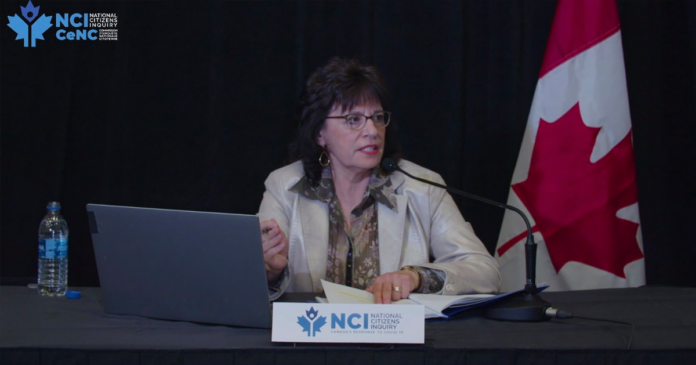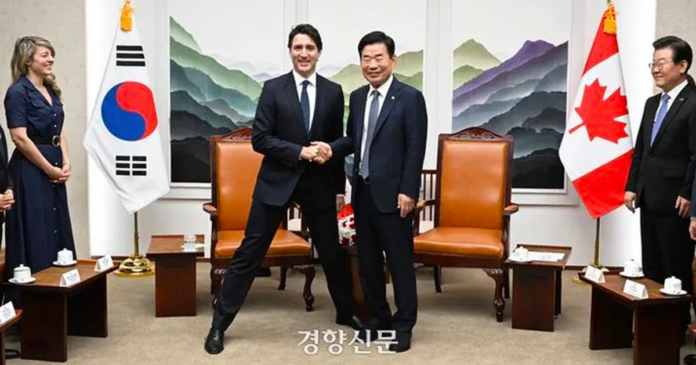The Alberta NDP is often seen as the preferred party of teachers. Indeed, the Alberta Teachers Association (ATA), our main union, has spent hundreds of thousands of dollars over the past several years opposing almost every educational proposal released by the United Conservative Party (UCP) while collaborating closely with the NDP on developing policy ideas for what they might do if returned to government. But as a Grade Two teacher myself – and one who taught in NDP-governed British Columbia before moving to Alberta last year – I have some concerns about what an NDP win would mean for the future of education in this province.
In this series of articles, I would like to outline those concerns to give a second opinion on the story our teachers unions are telling. Voters should know that there are good reasons to be skeptical about the way the Alberta NDP would manage education if they were returned to government.
My first concern is retrospective. How would the NDP have managed the education system during Covid?
Today, it’s widely recognized that long school closures and the disruption they caused to children’s learning and socialization were harmful and often disproportionate to the risks that children faced from Covid, which were known to be very low for most children from very early on in the pandemic.
We also knew quite early that schools did not drive Covid transmission, but rather just reflected broader community spread. A particularly galling study showed that school reopening in Ontario increased community transmission by just between 0.07% and 0.13% in the winter of 2021, demonstrating how ineffective school closures were at slowing the spread.
The harms of school closures, on the other hand, were significant. To cite just a few examples: academic achievement and physical activity decreased, while eating disorders, anxiety, and childhood obesity all increased. No wonder scholars and ethicists have called extended Covid school closures everything from “a horrific error” to “a moral catastrophe.”
Looking back, Albertans can be thankful that their leaders avoided the worst of these consequences by taking a relatively measured approach, one that focussed on balancing the risks of Covid with the obvious harms of keeping them away from their classrooms, teachers, and friends. Alberta schools reopened in September 2020 with a series of mitigation measures based on the advice of Dr. Deena Hinshaw, the provincial public health officer at the time.
But as schools prepared to reopen in the summer of 2020, NDP politicians fearmongered about the risk that some return to normalcy would create for kids and teachers. They argued schools would not be safe unless thousands more teachers were hired and classroom spaces found to reduce all class sizes to no more than 15 students.
That sounds nice in theory, and of course, smaller class sizes are often easier to manage, particularly when it comes to enforcing social distancing. But it was impractical. Where would these thousands of new teachers be found?
Where would the new schools and classrooms be? Would this have pushed the school reopening date till later? What would kids have done during the additional weeks or months required for organizing all this?
There were no specific answers in their plan, just an appeal to fear over evidence and a demand to spend a billion dollars all at once.
As I followed this story from across the Rockies in NDP-governed British Columbia, I was surprised by the recklessness of the Alberta NDP’s rhetoric. To their great credit, their sister party in BC actually brought kids back to school even earlier than Alberta did. In fact, the BC NDP brought kids back to school earlier than almost any other jurisdiction in North America.
I taught my half-sized, socially distanced class in Vancouver in June 2020. I look back on that early reopening fondly. I knew that my students were being traumatized by Covid and the associated restrictions. So guided by the Ministry of Education’s recommendation to focus on supporting kids’ mental health and well-being, we spent much of that month making artwork, reading, discussing, and writing about short stories, and learning about plant science outside in the school’s garden. It was a positive experience, and it kept my students safe, healthy, and happy during a stressful time in their young lives.
Having tested that part-open model and looking at the mounting evidence from around the world that most kids were low-risk and schools were not superspreaders, the BC NDP decided to allow us to return to school with full-sized classes and imperfect social distancing come September. NDP leaders in BC sought to calm anxieties, reassuring us that schools were safe, and noting that while kids faced quite low risks from COVID, the risks to learning and mental health from being away from school were far greater. As a teacher, I was grateful for the chance to support my students’ learning and overall well-being that year. The world was a scary place for those kids, but were doing our best to make it as safe and as normal for our students as possible.
Meanwhile, just across the provincial border, NDP politicians in Alberta played on parental and teacher concerns, inflaming fears and causing panic unnecessarily.
Here’s one example from Rachel Notley, tweeting out her billion-dollar plan to hire thousands of teachers in late July 2020: “We estimate the cost of [our] recommendations, if fully implemented, to be $1 billion. This investment is necessary to keep 740,000 students & 10,000s of staff safe from the deadly virus…While these recommendations come with a cost, the consequences of pretending things can operate normally without consequence will be far more costly.” Or another from Sarah Hoffman, the NDP’s deputy leader and education critic, who said that “the UCP’s decision to reopen schools this fall with no additional support [sic] is dangerous and puts kids at risk.”
Reopening schools – even without reducing class sizes to 15 – wasn’t particularly dangerous. It didn’t put kids at undue risk. It was responsible and the right thing to do.
It can be hard to remember how many of us felt in the spring, summer, and fall of 2020. Fear was rampant and there were many unknowns. We needed our leaders to be measured in their rhetoric, to study the evidence carefully, and especially to avoid playing politics with kids’ learning and mental health. It was a test of judgment and leadership.
Alberta’s UCP government, and especially Education Minister Adriana LaGrange, passed that test.
Despite the pressure, they reopened schools, and with fits and starts, they kept them open longer and more consistently than many other jurisdictions in North America. Today’s kids are better off for it. They missed less school, have less mental and physical health damage, and they got to have a more normal childhood. It wasn’t perfect – notably, the UCP closed schools for a few weeks in the face of operational challenges in the spring of 2021 – but it was better than what kids got in many other jurisdictions. This isn’t just a partisan point, though, because the BC NDP also passed that test. They generally put kids’ best interests ahead of the fears of their traditional supporters in the teachers’ unions, and they deserve considerable credit for that decision-making.
But the behaviour of the Alberta NDP during that time did not meet the moment.
They tried to scare people about the health of their health of their children – perhaps because they weren’t considering the evidence, or perhaps just to score political points.
Based on Rachel Notley’s own statements, had her party been in power, school reopening would have been jeopardized and made contingent on an unnecessary, detail-free billion-dollar scheme of mass school expansion. Covid disruptions to kids’ lives were bad enough already. We didn’t need more.
As teachers work to repair the damage of the Covid years on our students, we should be cautious about politicians who would have made those years even more damaging for their learning and mental health. And as voters consider who should guide our education system into the future, it’s worth reflecting on what those politicians would have done with it during one of the most challenging times in our recent past.



























